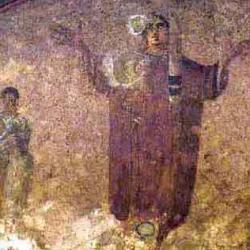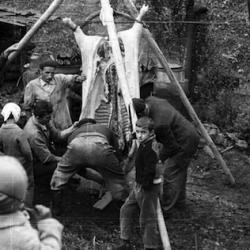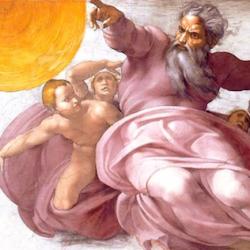In his opening essay in Christian Dogmatics, co-editor Mike Allen quotes George Hunsinger’s claim that Jurgen Moltmann, Wolfhart Pannenberg, and Eberhard Jungel are all guilty of historicizing eternity and subjecting it to eschatology. They all start from what Allen calls a “hard” or “ontological” interpretation of Rahner’s Rule that “The economic Trinity is the immanent Trinity and the immanent Trinity is the economic Trinity.” In the view of these theologians, Allen says, “the eternal Trinity is constituted by and coterminous with the Trinity in its external works” (19).
Allen and Hunsinger aren’t alone in this assessment of Moltmann.
But then I remember Moltmann’s Barthian accent on God’s freedom, and read this from his Theology and Joy: “If creation is necessary for God himself, then God is not its ‘free creator.’ If on the other hand creation is merely an accident or misadventure from eternity, then the free creator is not God but a capricious demon. . . . The world as free creation cannot be a necessary unfolding of God nor an emanation of his being from his divine fullness. . . . But he doesn’t act capriciously. When he creates something that is not God but also not nothing, then this must have its ground not in itself but in God’s good will or pleasure. Hence creation is God’s play. . . . It is the realm in which God displays his glory” (40–1).
Perhaps Moltmann means to say this: God freely creates, and in freely creating He also freely determines His own Triune character. That is an odd thing to say: Who is this pre-Triune being that wills to be Father, Son, and Spirit? And if there is such a pre-Triune God, isn’t that being really God? There are theologians who say such odd things, but at least here Moltmann isn’t one of them. Creation isn’t the realm where God becomes glorious, but where He “displays his glory.”
This is by no means a complete defense of Moltmann, who may after all be self-contradictory or wrong. But it does give one pause before accepting some of the standard readings of his theology.















